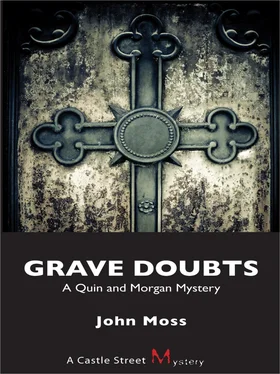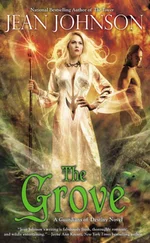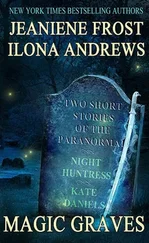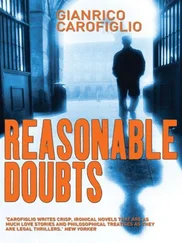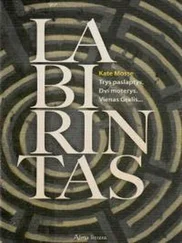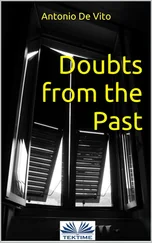John Moss - Grave doubts
Здесь есть возможность читать онлайн «John Moss - Grave doubts» весь текст электронной книги совершенно бесплатно (целиком полную версию без сокращений). В некоторых случаях можно слушать аудио, скачать через торрент в формате fb2 и присутствует краткое содержание. Жанр: Криминальный детектив, на английском языке. Описание произведения, (предисловие) а так же отзывы посетителей доступны на портале библиотеки ЛибКат.
- Название:Grave doubts
- Автор:
- Жанр:
- Год:неизвестен
- ISBN:нет данных
- Рейтинг книги:4 / 5. Голосов: 1
-
Избранное:Добавить в избранное
- Отзывы:
-
Ваша оценка:
- 80
- 1
- 2
- 3
- 4
- 5
Grave doubts: краткое содержание, описание и аннотация
Предлагаем к чтению аннотацию, описание, краткое содержание или предисловие (зависит от того, что написал сам автор книги «Grave doubts»). Если вы не нашли необходимую информацию о книге — напишите в комментариях, мы постараемся отыскать её.
Grave doubts — читать онлайн бесплатно полную книгу (весь текст) целиком
Ниже представлен текст книги, разбитый по страницам. Система сохранения места последней прочитанной страницы, позволяет с удобством читать онлайн бесплатно книгу «Grave doubts», без необходимости каждый раз заново искать на чём Вы остановились. Поставьте закладку, и сможете в любой момент перейти на страницу, на которой закончили чтение.
Интервал:
Закладка:
“The lath over the sealed door and the chute must have been lifted from another room as well, even another house. It’s all hand-split swamp cedar, but tacked on with old nails that have recently been cleaned. The chute, of course, was a rather ingenious dumbwaiter to bring wood upstairs for the fire. This house predates cast-iron stoves, which were evidently a later accoutrement. There is a fireplace here, hidden inside the gable-end wall. A stovepipe was later forced through into the chimney. Another goes up through the roof in the hall, above the dumbwaiter shaft. The chute was lined for laundry quite recently, possibly between the wars, and blocked off at floor level only in the last fortnight or so.
“It is an admirable counterfeit, all of this, but there is an intriguing anomaly, and that, Miranda — if I may call you Miranda — is the poetry you wanted. This fraud paradoxically insists on being exposed — something hidden, a concealment, that yearns for revelation. This makes it a work of art. The whole project is designed for our appreciation, incomplete until it has been exposed.
“The key is the hanging cabinet: it was bolted in place, it is valuable. A salvager would be counted on to retrieve it. It would refuse to yield. The wall had to give way. The bodies were exposed not amidst rubble but in pristine condition — exactly, I imagine, as the killer intended. And there we are!”
Alexander Pope looked pleased with himself.
Morgan was excited by his articulate economy with words. The man was worthy of his namesake. Miranda was thinking, there is nothing poetic about murder, except in classical tragedy, or in revisionist history, or perhaps in a psyche twisted by unspeakable suffering. She said nothing.
Morgan was thinking, this is theatre not poetry. But is the killer a brilliant and haunted dramaturge, or merely some wretched soul on the edge of events who has set a story in motion and is now waiting in the wings to see how it all turns out? Are we part of the audience or part of the action?
CHAPTER FIVE
For the next two weeks, Miranda and Morgan scanned missing-persons files, tracked down false leads, and despite an absence of DNA records, eventually established probable identities. They found that neither of the deceased had any connection with the derelict house, and no relationship with each other. The cause of their deaths had not been precisely determined, nor, due to their mummified condition, could the exact time of their demise be established, especially since both were missing for some time before anyone noticed. The man was a traveller from the States, and no one at his home office even knew he was in Toronto. He had an ex-wife who wasn’t aware of his absence until a postdated cheque failed to be honoured, and who was the beneficiary of his modest insurance policy. He was Jewish and had never been associated with the Masonic Order. The woman was a fourth-year student at York University, ominously majoring in anthropology. She was from Liverpool, estranged from her family, had recently emerged from a dishevelled relationship with another woman, and was a Mormon, not Catholic as the crucifix implied. Her former girlfriend, an agnostic, was shocked by her death.
The papers ran with the Hogg’s Hollow murders for a couple of days. Television coverage lasted only a few hours. When it turned out the dead were not actually lovers, the news media, following their prime directive to entertain, shifted attention to more accessible crimes and misdemeanours, where the blood was still warm and death was a thrill. The public appetite for horror was fickle. Without romance to keep the blood flowing, the story had the lasting power of a horror film, forgotten half way home from the theatre. It was as if the grisly events had actually occurred in the colonial past. They might have sustained interest for history buffs and the occasional misdirected forensic anthropologist, but otherwise seemed of likely concern only to police assigned to the case.
Miranda and Rachel Naismith became friends. One day when they were off duty they drove out to Port Hope in Miranda’s Jaguar. Lunching in a family restaurant on Walton Street that had booth-side jukeboxes and grey-flecked tables and served real raisin pie, they felt the time-warped atmosphere bode well for their intended visit to Alexander Pope. They were both fascinated by the man’s capacity to represent himself as being from an era that never quite was. Port Hope was the perfect setting for an adventure through time, straddling as it did so many periods in its diverse architecture and casual gentility.
The downtown area was Ontario vernacular, shorn of the garish paraphernalia of twentieth-century merchandising. Three- to five-storey red-brick buildings hovered close to the street, interspersed with the occasional civic edifice of quarried stone. Victorian cornices and casements, pediments and paint — all were revealed in parochial splendour, celebrating the town’s pride in its historical past and aesthetic present.
Driving a circuitous route to Pope’s place on the outskirts, Miranda and Rachel shared their admiration for old houses, from modest mansions topped with widow’s walks to painted-brick cottages tucked behind white picket fences. Most of the older homes bespoke a lovely merging of civic responsibility, architectural self-consciousness, and horticultural vanity. It occurred to Miranda as they drove past a well-kempt cemetery that even the dead in Port Hope maintained decorum.
As curiosity began to seem an exercise in delayed gratification, they veered away from the town and after ten minutes of exhilarating lakeshore landscape they turned into a long driveway and drove up a hill to Alexander Pope’s fine old house, which was set in brooding isolation behind a shrouding of foliage. The building itself was a marvel of austere congeniality on the outside, and conveyed the promise of esoteric pleasures within.
Waiting at the door on the side porch, which was partially enclosed as a shed, Miranda stared into the shadows beside them. There was what appeared to be the entrance to a wood-fired sauna. A stack of dry maple firewood. Various tools for gardening and building. A chainsaw. She felt the thrill of connection on seeing a couple of compressed-air tanks leaning against the wall.
He’s a diver, she thought.
Alexander Pope was a man of wide-ranging pursuits, as well as of arcane skills, esoteric knowledge, eccentric apparel, awkward charm, and stellar lineage.
She was going to mention the scuba gear to Rachel but something in the other woman’s muted excitement made her keep silent. The two of them were like teenagers calling on the mysterious boy in the big house who had just moved into the neighbourhood. When the inner door opened, they breathed deeply in unison, as if something magnificent were about to occur.
Alexander greeted them through the storm door like old friends. He recognized them instantly and invited them in. After brief chatter he gave them a tour of the house. He identified old locks, small cabinets, hinges, and latches, and with unexpected candour he showed them how to distinguish original sideboards and dressers and tables from reconstructions. He showed them replicas he had himself contrived, with meticulous attention to detail. Even hidden joints, places, and materials never meant to be seen, bore the artisan’s signature devotion to successful dissembling.
Since the surrounding grounds were too soggy from the spring thaw to be negotiated, he explained the exterior of the house while they sat in front of the kitchen fire. He described how the Georgian lines were so well-served by painted wood siding made to represent ashlar blocks, which came to light when the layers of clapboard and aluminum had been peeled away.
Читать дальшеИнтервал:
Закладка:
Похожие книги на «Grave doubts»
Представляем Вашему вниманию похожие книги на «Grave doubts» списком для выбора. Мы отобрали схожую по названию и смыслу литературу в надежде предоставить читателям больше вариантов отыскать новые, интересные, ещё непрочитанные произведения.
Обсуждение, отзывы о книге «Grave doubts» и просто собственные мнения читателей. Оставьте ваши комментарии, напишите, что Вы думаете о произведении, его смысле или главных героях. Укажите что конкретно понравилось, а что нет, и почему Вы так считаете.
